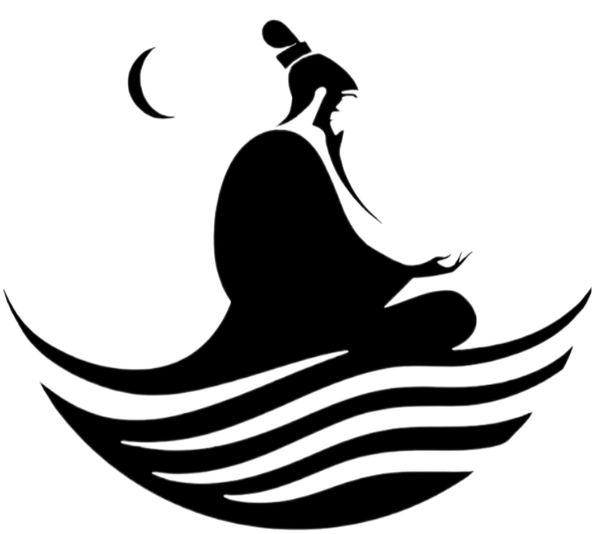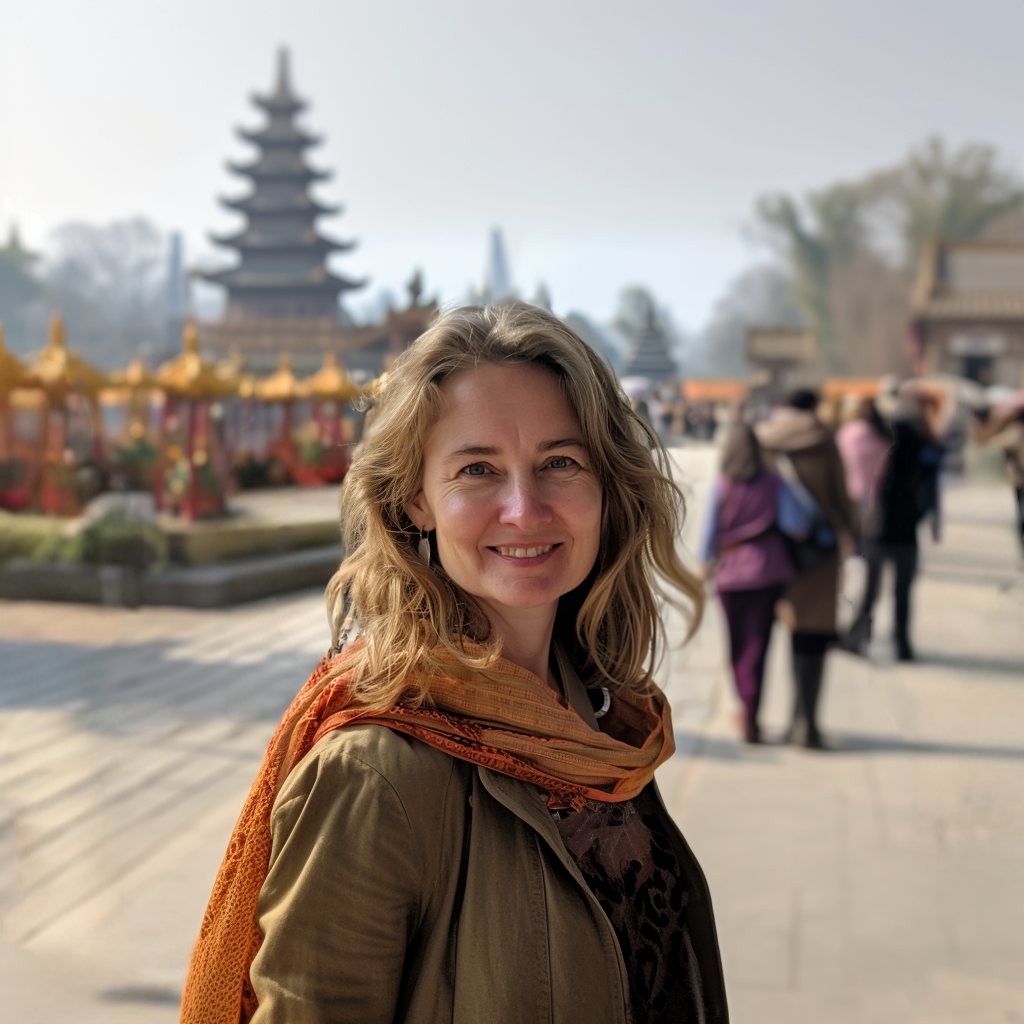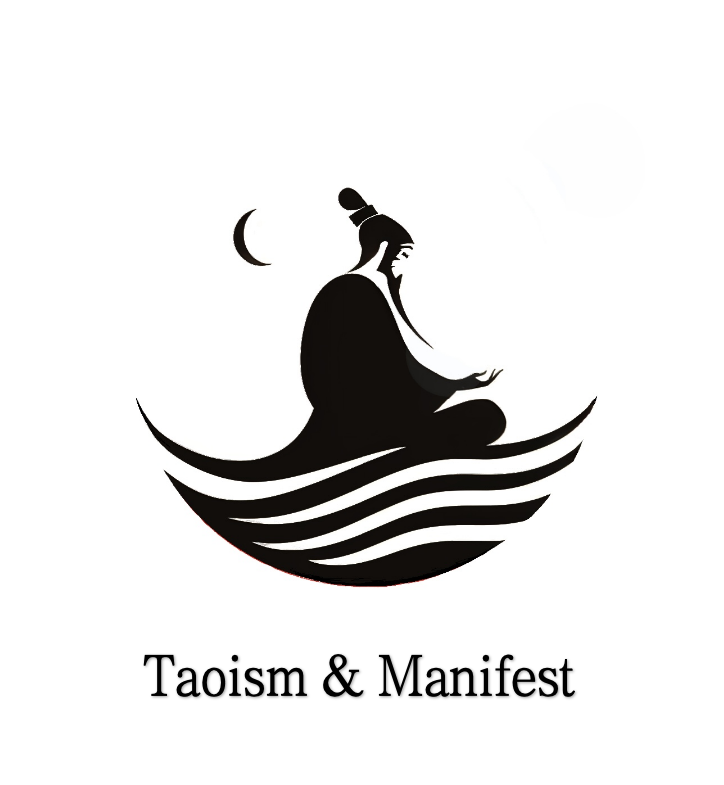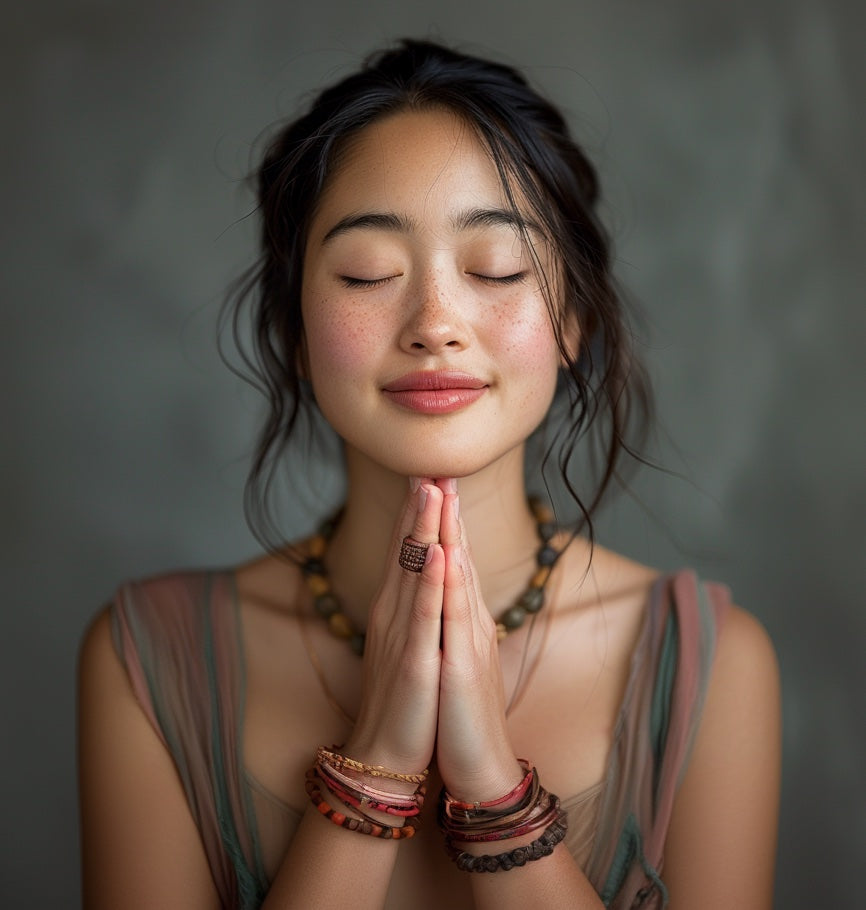
The tao te ching gives old advice to help people stay calm. Life can be busy and stressful. Many people want strong inner power. Real strength often comes from being gentle and flexible. Diane Dreher says the Tao Te Ching likes bending like bamboo. This helps people stay strong and peaceful. Old wisdom says knowing yourself and being humble is important. These things help you feel good inside. Meditation from these ideas can lower stress. It also helps your mind stay steady.
Key Takeaways
Real inner strength comes from being gentle and flexible. It also comes from living in balance with nature and yourself. Knowing yourself well and being self-aware gives you real wisdom. It helps you stay calm when life is hard. Letting go of control and going with changes lowers stress. It also brings you peace. Being kind, patient, and humble builds strong friendships. It also makes your life meaningful. Simple habits like meditation and mindful breathing help you grow inner power. Reflection also helps you live with purpose.
Tao Te Ching Essentials
Core Teachings
The Tao Te Ching gives old advice to help people live in balance. It teaches that everything is connected. People are not alone from the Earth or each other. All things move together as part of the Tao. This idea brings peace and makes people feel responsible. People who follow these ideas care for nature and others like they care for themselves.
Some of the most important ideas are:
Living in balance with the Tao, which is the source of all things.
Practicing Wu Wei, or non-action, by letting things happen on their own.
Seeing emptiness and simplicity as strengths.
Not thinking only about winning or losing.
Being kind, humble, and patient.
Leading by following the Tao, not by trying to control everything.
Noticing how all living things are connected.
Letting go of wanting too much and judging others to find calm inside.
Following the tao helps people find truths inside themselves. These ideas show a way to feel calm and whole. The Tao Te Ching’s poems have shaped ideas in the East and West for a long time.
Modern Relevance
Today, the Tao Te Ching’s ideas still help people with new problems. Many people feel stress because life moves fast. The Tao says real strength comes from balance, not force. Its old wisdom tells people to slow down, act with care, and live simply.
“Nature does not hurry, yet everything is accomplished.”
— Laozi, Tao Te Ching
Modern thinkers say the Tao’s ideas can help mental health. By accepting change and not trying to control everything, people feel more peace. The ideas of humility, kindness, and self-control help people have better friendships and make smart choices. The Tao Te Ching inspires people to care for the Earth, look for harmony, and enjoy the present.
Inner Power and the Tao
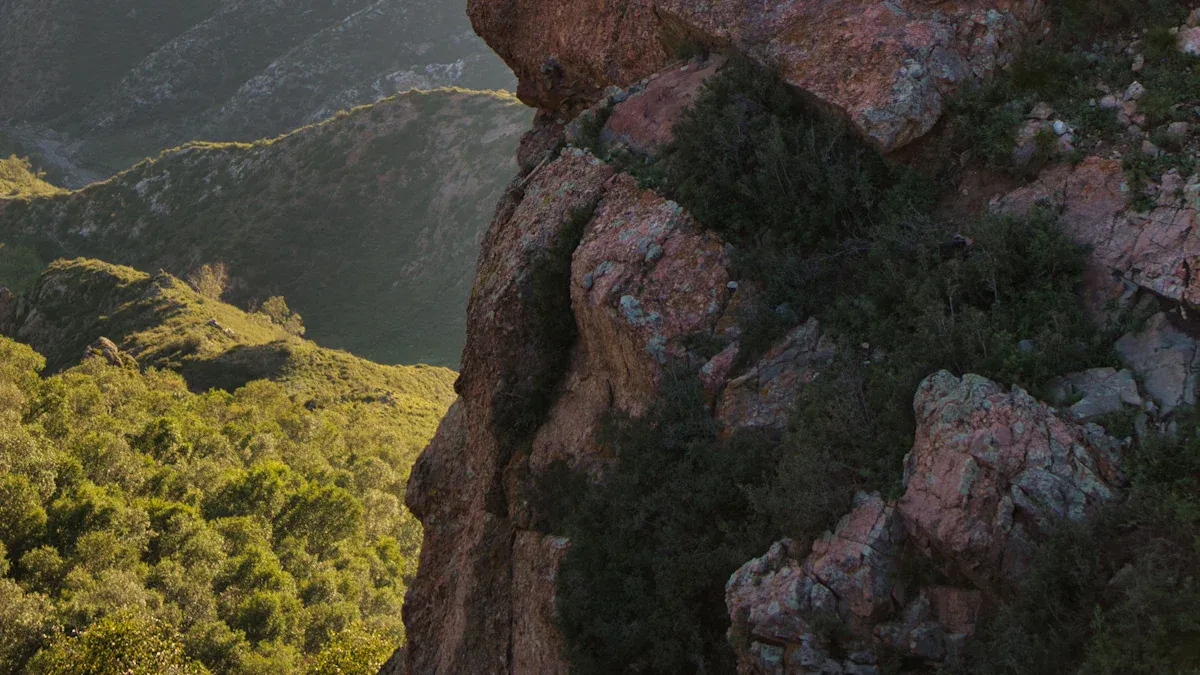
Harmony with the Tao
Harmony stands at the heart of the Tao. People who seek inner strength often look for ways to stay steady when life changes. The Tao teaches that true power comes from living in balance with nature and the world. When someone aligns with the Tao, they find a calm inner response to stress and challenge. This sense of harmony does not mean ignoring problems. Instead, it means moving with life’s flow, not against it.
Research on Taoist mental health shows that Harmony with the Tao helps people cope with stress. Experts explain that Taoist ideas encourage self-transcendence and connection with nature. This approach gives people a wider view of life. They learn to accept what happens and let go of the need to control everything. This mindset brings peace and helps people feel whole.
Many modern therapies use Taoist ideas. For example, mindfulness and acceptance help people handle emotions and build resilience. These practices teach people to notice their thoughts and feelings without judgment. By doing this, they create space for calm and clarity. People who follow the Tao often report feeling more balanced and less anxious.
Harmony also means caring for others and the world. The Tao says that all things connect. When people act with kindness and patience, they build strong relationships. They also find meaning in daily life. Living in harmony with the Tao supports both personal growth and a peaceful community.
Strength in Yielding
The Tao teaches that real strength often looks soft or gentle. This idea surprises many people. The Tao uses water as a symbol. Water flows around rocks and takes the shape of any container. Over time, water can wear down even the hardest stone. This shows that yielding and flexibility can be powerful.
Lao Tzu and other sages saw that people who bend do not break. They taught that humility and softness help people adapt to change. This kind of strength does not fight or force. Instead, it moves with life’s currents. People who practice yielding find that they can handle stress without feeling overwhelmed.
Modern stories show how yielding brings success. For example, a business leader named Gāo Défú used flexibility to help his team face market changes. By letting go of strict plans and trusting the team, he saw more creativity and less stress. Another leader, Miranda Qu, used playful ideas to break down barriers at work. Her approach, inspired by Taoist balance, helped people work together and feel empowered.
Taoist yielding shares ideas with other philosophies. Stoicism, for example, teaches acceptance of what cannot be changed. Both Taoism and Stoicism value inner peace and letting go of control. However, Taoism focuses on softness and moving with the flow, while Stoicism uses reason and discipline. Both paths lead to balance and harmony.
Yielding does not mean weakness. It means knowing when to act and when to wait. People who yield trust the Tao and their own inner strength. They find that life becomes smoother and more joyful. By practicing yielding, anyone can discover a new kind of power—one that grows from patience, openness, and harmony with the Tao.
Self-Awareness and Mastery
Knowing Yourself
The Tao Te Ching says knowing yourself is real wisdom. This idea is very important for self-awareness. When people look inside, they start to see their thoughts and feelings. They also notice what they do each day. Self-awareness grows when you think about your actions and watch yourself honestly. Many Taoist teachers believe self-awareness is the first step to growing as a person.
Modern psychology agrees with these old ideas. Experts like Thich Nhat Hanh say mindfulness means noticing each moment. This helps people see their feelings and body clearly. When someone pays attention to their inner world, they learn more about themselves. Csikszentmihalyi’s research shows deep focus helps people be creative and skilled. People who practice self-awareness often feel more balanced in life.
Taoist meditation gives simple ways to build self-awareness. These include deep breathing, gentle stretching, and quiet thinking. A basic routine could be:
Breathe deeply for ten minutes and focus on your belly.
Imagine energy moving through your body for five minutes.
Doing this every day helps people connect with their true self. Taichi is a moving meditation that also builds self-awareness. Its slow moves help people notice their breath and body. Over time, these habits bring more balance and help people grow.
Taoist teachings remind us that knowing yourself is real wisdom. Silence, patience, and being humble help people listen deeply. When people sit quietly, they can hear their thoughts and feelings without judging. This kind of thinking makes people stronger inside. The Tao Te Ching says self-awareness is power. When people know themselves, they can handle changes calmly and with grace.
“Knowing others is intelligence; knowing yourself is true wisdom. Mastering others is strength; mastering yourself is true power.”
— Laozi, Tao Te Ching
Self-awareness grows with practice. Every day gives new chances to think and learn. When people make time to reflect, they find what matters most. This journey leads to real mastery and lasting growth.
Self-Discipline
Self-discipline is the key to mastery. The Tao Te Ching says mastering yourself is true power. This means guiding your actions with awareness and living by clear rules. Self-discipline helps people stay true to their values, even when life is hard.
Taoist wisdom says self-discipline is not about strict rules. It means acting with balance and letting go of selfish wants. The wise person puts others first, but still lives well. This shows self-discipline that is above ego. When people avoid selfishness, they feel more happy and peaceful.
Many Taoist ways help build self-discipline. Mindful breathing calms the mind and helps people focus. Being in nature reminds people of simple beauty. Making daily life simple helps people follow Taoist ideas. Wu Wei, or effortless action, means letting things happen naturally. Daily reflection helps people notice their actions and make good choices.
Mindful breathing for five to ten minutes each day builds patience and awareness.
Letting go of extra tasks gives space for balance and growth.
Meditation helps people watch their thoughts without reacting.
Self-discipline also means balancing your true self and your ego. The true self makes choices with willpower and awareness. When people practice moderation, they avoid going to extremes. Meditation and mindfulness help people step back from urges and make smart choices. This helps people grow and feel well for a long time.
The Tao Te Ching teaches that mastering yourself is true power. Both success and failure are part of life. When people let go of wanting certain results, they find stability. Self-mastery becomes the base for a happy and balanced life.
Self-discipline grows slowly, like a tree. Each day of practice makes it stronger. When people live by Taoist ideas, they find that self-awareness is power. Knowing yourself is real wisdom, and mastering yourself is true power. This path leads to real mastery and deep personal growth.
Letting Go and Flow

Wu Wei in Life
Wu Wei is a key idea in the tao. It means "effortless action." People often think Wu Wei is doing nothing, but it is not. Wu Wei is acting in harmony with the tao and the natural flow of life. This way, actions feel smooth and easy. The tao teaches that when people follow Wu Wei, they do not force things. They let events unfold and respond with calm.
Many people use Wu Wei in daily life. Monks at Baiyun Monastery work with nature’s rhythms. They find more energy and peace. Martial arts masters like Bruce Lee show Wu Wei by moving with little effort but great skill. In work, people can plan tasks when their energy is high. They can take mindful pauses to reset. These habits help reduce stress and improve focus.
Wu Wei also helps with problem-solving. When people stop forcing answers, new ideas come more easily. The tao shows that the power in letting go brings mental clarity. People who practice Wu Wei trust themselves and the tao. They find balance and joy in both work and play.
Releasing Control
The tao teaches that true strength comes from surrender, not from holding tight. Many people try to control every part of life. This often leads to stress and worry. The tao uses the image of a tree. A tree grows by reaching for sunlight and water, not by forcing itself. Growth through surrender happens when people open up and let life flow.
Letting go is not always easy. People may resist change or worry about the future. The tao suggests starting with small steps. Mindful breathing, spending time in nature, and simple routines help. When people surrender, they find the power in letting go. This brings peace and steady progress.
Other wisdom traditions agree with the tao. Buddhist and Stoic thinkers say that surrender and acceptance lead to inner peace. Modern science shows that letting go lowers stress and helps the brain stay calm. People who practice surrender feel more free and confident. They learn that the tao supports them, even when life changes.
Letting go does not mean giving up. It means trusting the tao and allowing life to unfold. This path leads to less anxiety and more happiness. The tao reminds everyone that surrender is a source of real power.
Living with Purpose
Finding Meaning
Living with purpose is very important in the tao. People can find meaning by practicing acceptance every day. Acceptance is not just sitting back and doing nothing. It means being kind, being modest, and not judging others. When people think about what they do and why, they see how things connect. They learn that everyone is special and can be themselves. The tao says to let life happen naturally and not rush to be perfect. This way, people have time to enjoy hard things and learn from them.
Making real connections with others also gives life meaning. The tao cares about true friendships. People respect each other’s differences and stay true to themselves. Living with purpose gets stronger when people accept who they are and accept others too. Mindfulness helps people notice their feelings and what they do. When people make mindful choices, they can live by their values and the tao. This makes every moment feel meaningful.
Purposeful Action
Purposeful action means doing things on purpose and knowing why. The tao teaches people to move with life’s flow. Wu Wei, or effortless action, shows that working with the tao works better than forcing things. Mindful people can focus on what is important. They use mindful choices to feel less stress and stay in the moment.
Simple habits help people live with purpose. Some start the day with deep breaths or stretching. Others try taoist meditation, like sitting quietly and letting thoughts pass. These habits give people time to think and grow. People who live with purpose often go outside, keep life simple, and think about their day. They pick actions that fit their values and the tao.
Living with purpose does not mean knowing everything. It means making mindful choices, accepting change, and trusting the tao. Every day is a new chance to act with purpose and enjoy the journey.
Practical Tools
Meditation
Meditation is very important in Taoist wisdom. Many people use meditation to know themselves better. It also helps them notice what is happening now. Taoist meditation usually starts with easy steps. A person can sit still, close their eyes, and watch their breath. This makes the mind and body feel calm. Old Taoist books talk about "sitting and forgetting." In this, a person lets go of worries and thoughts. This brings peace and helps the mind feel clear.
Today, science shows meditation lowers stress and helps people feel balanced. People who meditate often feel more calm and focused. Taoist meditation can also have gentle moves like Qigong and Tai Chi. These mix breathing, moving, and paying attention. They help people feel their bodies and connect with nature. Many people say that meditating often helps them notice more and stay calm when things are hard.
Some Taoist meditation ways are:
Sitting still and watching your breath.
Doing Qigong or Tai Chi as moving meditation.
Using pictures in your mind to move energy in your body.
Standing still to get stronger and more aware.
These ways help people notice the present and feel closer to the Tao.
Everyday Decisions
Making choices each day can be tough. Taoist ideas give easy ways to choose with balance and clear thinking. The Tao tells people to act with care and know themselves. Instead of hurrying, a person can stop and notice their feelings. This short pause gives time to think and make better choices.
Taoist choices are about being flexible and not going to extremes. Like water, a person can change with life but stay true inside. The Tao says sometimes the best thing is to be gentle or wait. People can ask, "Does this choice bring peace?" or "Am I being kind and balanced?" These questions help people act with the Tao.
Taoist ideas at work help people get along and do good things. People who use care and self-awareness at work feel more connected and make better choices. The Tao reminds everyone to trust life’s flow and act with care right now.
Overcoming Challenges
Facing Doubt
Many people feel doubt when they try something new or face change. The tao teaches that doubt is a natural part of life. Instead of fighting doubt, people can learn to accept it. Taoist family therapy uses the idea of "negative capability." This means a person can hold uncertainty without feeling anxious. They do not need to solve every problem right away. They can let things unfold and trust the tao.
Modern psychology also supports this idea. Acceptance and Commitment Therapy encourages people to accept their thoughts and feelings. They do not have to push away doubt. They can notice it and let it pass. This helps people build self-awareness and emotional strength. The tao suggests several ways to manage doubt:
Flow with change, like water moving around rocks.
Let go of fixed outcomes and stay open to new paths.
Observe before acting and take small, careful steps.
Embrace uncertainty and use it to grow.
These steps help people move forward with calm and confidence. They learn to trust the tao and their own journey of personal growth.
Embracing Imperfection
The tao values imperfection as a path to wisdom. Many verses in the Tao Te Ching talk about "unlearning" and letting go of pride. People do not need to be perfect to find happiness. Humility and openness help people connect with the tao and with others. Personal growth happens when people accept their flaws and keep learning.
Modern ideas like wabi sabi and kintsugi show the beauty in things that are not perfect. For example, Celine Santini used kintsugi to heal after a hard time. She learned to see her scars as part of her story. In work and life, people who accept imperfection feel less stress and more joy. They become more creative and resilient.
The tao teaches that everyone can grow by embracing mistakes and learning from them. Leaders who show acceptance and patience inspire others. They help create spaces where people feel safe to try, fail, and try again. This spirit of acceptance supports self-awareness and lasting personal growth.
The Tao Te Ching gives old advice for building inner strength and living with meaning. Many experts share these simple steps:
Learn to understand your own story and accept mistakes.
Stop trying to control everything and be strong by being humble.
Spend time alone to find out what you can do and what matters to you.
Always remember, knowing yourself is real wisdom and helps you grow.
If you start with just one mindful choice, you can live each day with purpose. Every day is a new chance to remember that knowing yourself is real wisdom and to build strong inner power.
FAQ
What is the Tao Te Ching?
The Tao Te Ching is an ancient Chinese book. It shares wisdom about living in harmony with nature. People read it to find peace and balance in life.
How can someone use Taoist ideas every day?
People can start by taking deep breaths, staying calm, and letting go of stress. They can also try to act with kindness and patience. Small steps help build inner strength.
Does meditation help with inner power?
Yes! Meditation helps people focus and relax. It teaches the mind to stay calm. Many find that regular meditation makes them feel stronger inside.
Can anyone practice Taoist wisdom?
Anyone can practice Taoist wisdom. Age or background does not matter. People only need an open mind and a willingness to learn. The Tao welcomes everyone.
